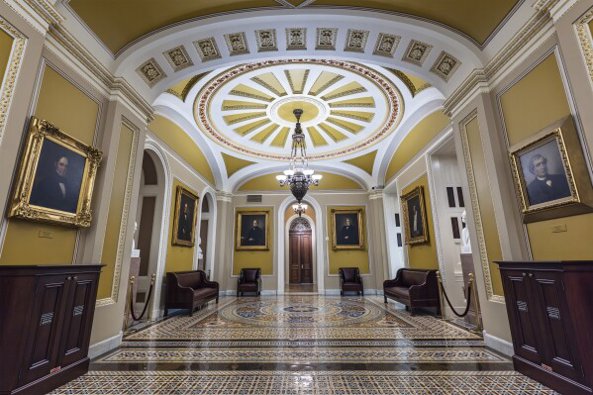
Senate Passes Trump’s $3.3T Budget, House Sets Final Vote
Senate passes Trump’s $3.3T “big, beautiful bill”; House prepares for swift vote as GOP faces internal divisions.
Senate Delivers Key Win for Trump as GOP Unites Behind Sweeping Bill
The U.S. Senate, following an intense round-the-clock session, narrowly advanced President Donald Trump’s $3.3 trillion “big, beautiful bill” on Tuesday, sending the sweeping budget package back to the House of Representatives. The measure—covering taxes, spending, defense, and border security—passed with near-unanimous Republican support, save for Senators Thom Tillis, Rand Paul, and Susan Collins, while no Democrat voted in favor. Vice President JD Vance cast the tie-breaking vote, highlighting the razor-thin margin and the stakes for Trump’s legislative agenda.
After a marathon weekend of debate, amendments, and internal party negotiations, the Senate’s passage sets the stage for a critical final sprint in the House, where internal divisions still simmer. Fiscal conservatives in the House Freedom Caucus have voiced concern that the bill’s spending cuts are insufficient, while moderates worry about the impact of proposed Medicaid reductions. Despite these tensions, Republican leaders are determined to deliver the bill to Trump’s desk by July 4, emphasizing the urgency of the moment and the need to avoid disruptions to holiday plans.
House Faces High-Stakes Vote Amid GOP Skepticism
The House Rules Committee convened to tee up the bill for floor debate, with the chamber scheduled to meet at 9 a.m. Wednesday. Leaders hope for a swift vote, but Democrats are expected to employ procedural tactics to delay the process. Even with these hurdles, House Republicans are under pressure to unite, as just four GOP defections could sink the bill. Leaders have told hesitant members that further changes are unlikely, framing the current version as the best achievable compromise.
The House must first approve the procedural “rule” before the bill can be debated and voted on. In a best-case scenario, debate could begin by midday Wednesday and a final vote could follow in the early afternoon, though past legislative battles suggest delays remain possible. Republican leaders are counting on peer pressure and the looming July 4 deadline to galvanize support and prevent a prolonged session.
Legislation Advances Trump’s Tax, Immigration, and Defense Priorities
Trump’s “big, beautiful bill” enshrines his core legislative priorities. The package makes permanent the 2017 Tax Cuts and Jobs Act’s lower income tax brackets, introduces new deductions for tipped and overtime wages, and offers special tax relief for seniors. It also rolls back Biden-era green energy credits, redirects billions toward the Pentagon, and ramps up funding for Immigration and Customs Enforcement as part of Trump’s tough border stance.
The bill includes a $5 trillion increase to the national debt ceiling—intended to prevent a credit default this summer—but this provision has fueled fierce opposition from deficit hawks. The nonpartisan Congressional Budget Office projected the bill would add at least $507 billion to the deficit under current policy, or $3.3 trillion under current law. Senate Democrats have criticized the measure for the millions who could lose Medicaid and for deepening fiscal risks, while Majority Leader John Thune and others defended it as an essential step to safeguard economic growth and national security.
Notably, last-minute amendments included a $50 billion boost for rural hospitals and revised work requirements for nutrition assistance in certain states. The Senate’s final tweaks must now be approved by the House before the bill can be enacted.
Final Outcome Hinges on House Vote
As the House prepares for what could be a dramatic showdown, the outcome will shape the direction of U.S. economic, tax, and border policy for years to come. If passed, the bill will mark a defining legislative victory for President Trump as his administration seeks to cement a second-term legacy on fiscal, defense, and immigration fronts. With a self-imposed July 4 deadline, all eyes remain on Capitol Hill for the decisive vote.






